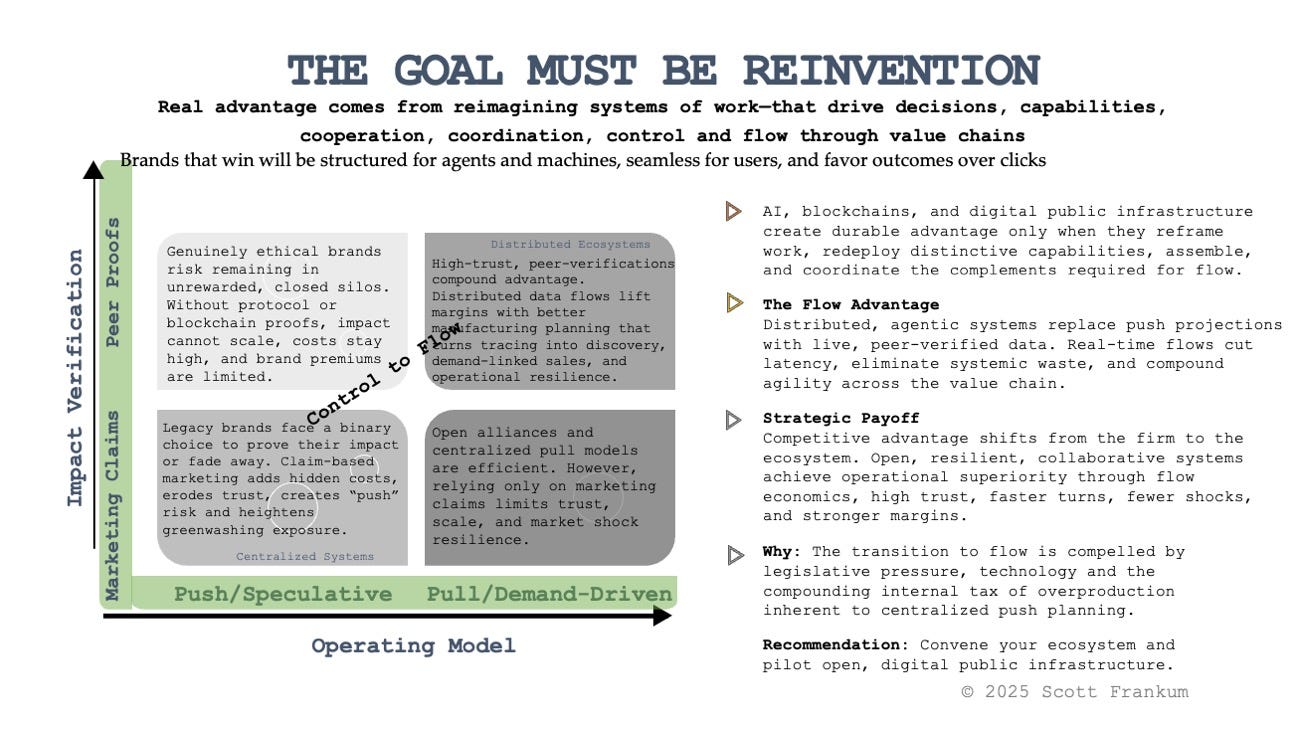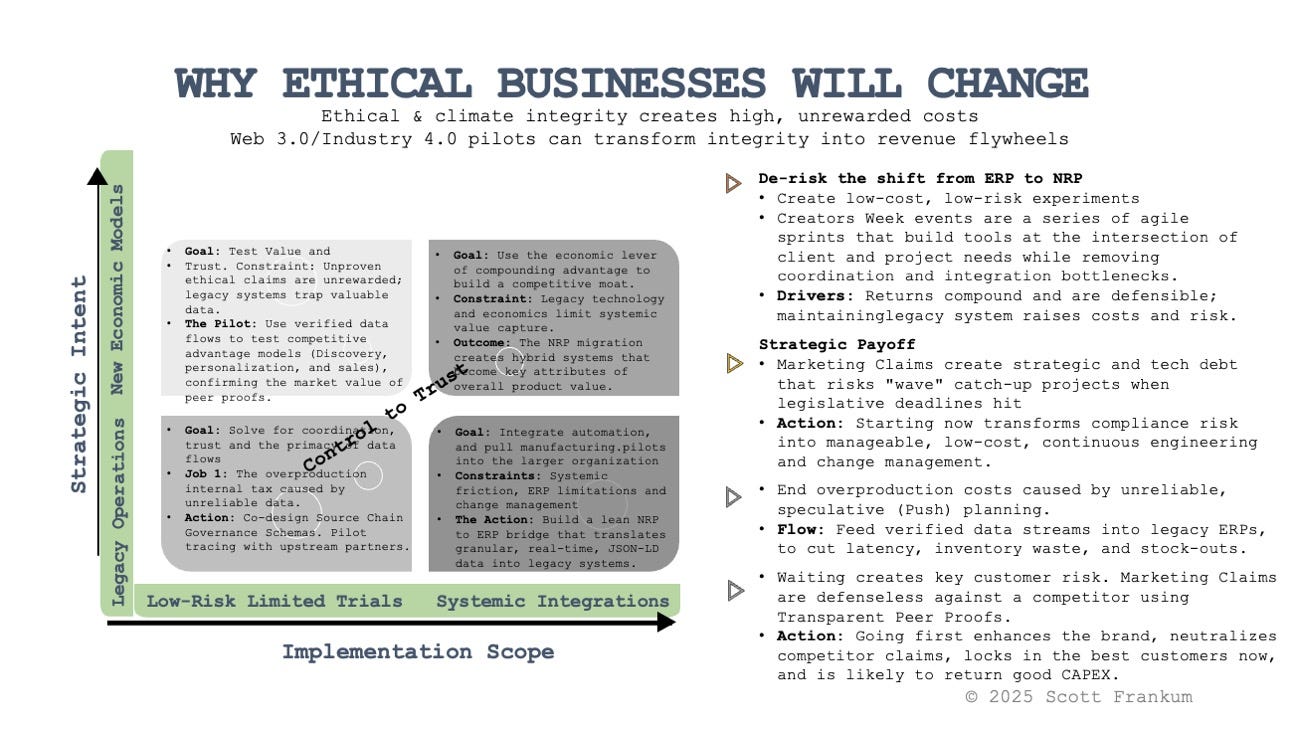The Costs of Information Asymmetry to Brands
How Proof Rewrites the Rules of Competition
Manufacturing is facing two invisible disruptions at once. Right now, the rarest thing is reliable supply chain data. Yet, a regulatory wave that demands proof for climate and marketing claims is coming. Second, AI forces brands to compete on trust, but neither brands nor AI agents have reliable data, which creates massive risk and extra costs.
Risks are especially high for companies doing the right things. My view is that tracing efforts built on JSON and JSON-RPC will become sunk costs with no value going forward.
The ‘Information Asymmetry Tax’—is the costs of unreliable data. This post explains why this problem is about to get worse, and why an entirely new competitive landscape is emerging.
Prosper in the New Regulatory Landscape:
Build Trust, End Greenwashing, and Win Search with Signed Product, Event, and Climate Data
Activate brand sustainability trust by enabling end-to-end tracing from seed to soil lifecycle stages.
Create signed product, event, and climate impact data graphs that meet EU Green Deal, ESPR, CSRD, W3.org, and SDG-aligned standards; end greenwashing risk.
Generate verifiable trust and impact by turning ethical, social, and climate claims into peer-signed data graphs that brands, regulators, and communities can all rely on.
Reduce long-term compliance and overproduction costs by using standards for continuous, low-cost engineering improvements instead of crisis-driven catch-up projects.
Operationalize emerging global standards through continuous, machine-readable data instead of static reports.
Agentic Readiness and Data Integrity (compute bottlenecks)
Future-proof value and supply chains by using permissioned, atomic-level data graphs optimized for AI, machine-readability, and real outcomes rather than clicks.
Manage invisible risks and limit liability with signed micro-events that minimize agent-to-agent errors and keep automated decisions inside predictable bounds.
Reduce energy use, inference cycles, and GPU load by replacing marketing claims and trapped data with high-integrity, machine-readable product, event, and climate data.
Flourish in the New Value Chain with Global South-friendly, High-trust, Permissioned Data
Write signed product, event, and climate impact data graphs that are Global South–friendly, permissioned, and let anyone, anywhere extend product tracing histories across the full lifecycle.
Expand economic participation by making creators, artisans, and smallholders visible in informal and hard-to-reach economic systems.
Document granular work contributions to support fair prices, direct payouts, and stronger maker bargaining power.
Protect intangible culture origin stories, designs, techniques, and local practices.
Build digital public infrastructure for trade and climate that ensures strong personal data privacy and avoids extractive platforms.
Reorganize systems around a product’s atomic unit of value to make granular data flows visible, queryable, and interoperable across brands, supply chains, and services.
Turn signed micro-events into documented data graphs that form the shared truth layer for planning, pricing, and discovery.
Boost profit margins by making product data flows a direct source of value.
Shift advantage from disconnected claims to trustworthy data flows that drive real decisions.
“High-trust, peer-verifications compound advantage. Distributed data flows lift margins with better manufacturing planning that turns tracing into discovery, demand-linked sales, and operational resilience.”
The competitive landscape is shifting. The Information Asymmetry Tax is already baked into your capital costs, compliance risk, and AI efforts.. Do you know exactly where your current systems are exposed to data risk?
Book a free Discovery Call to review how much the Information Asymmetry Tax is costing you. Scott@Economy3.org




